Today, I was searching for some stock images of women in their 40s and their 50s for a project at work.
I was uh, not at all expecting what my searches would turn up.
Not in the least.
These are absolutely beautiful photos by Danie Franco and one by Todd Cravens, by the way. (Plus whoever takes the photos for Curology, which are decent.)
And to be clear, they are not mis-tagged by the photographers.
They are uploading photographs with searchable tags like elderly, old, mature, mature woman, elder, older, senior, and female pensioner.
That can only mean that someone over at Unsplash is taking terms like “40 year old” and somehow connecting it with, well, female pensioner.
Search can be imperfect. I get it. You know this if, like me, you’ve ever searched for high school graduation gift ideas on Pinterest, only to be served a pin for how to teach your dog to obey when you say “stay.”
True story.
But still, search algorithms that go this wrong can have some unintended societal consequences that are worth thinking about.
Related: If you’re up for it, take a peek at this new study on age discrimination at work toward women over 40, which caught my eye this week.
The researchers concluded that women over 40 in the workforce were held back for having “too much family responsibility—and if that weren’t enough, for “impending menopause” (OMG what??)—while men over 40 benefit from an actual “fatherhood bump” in theirs salaries, because of a subconscious belief that fatherhood has matured them, making them more committed to working hard and providing for their families.
I’m just going to have to sit on this one for a while.




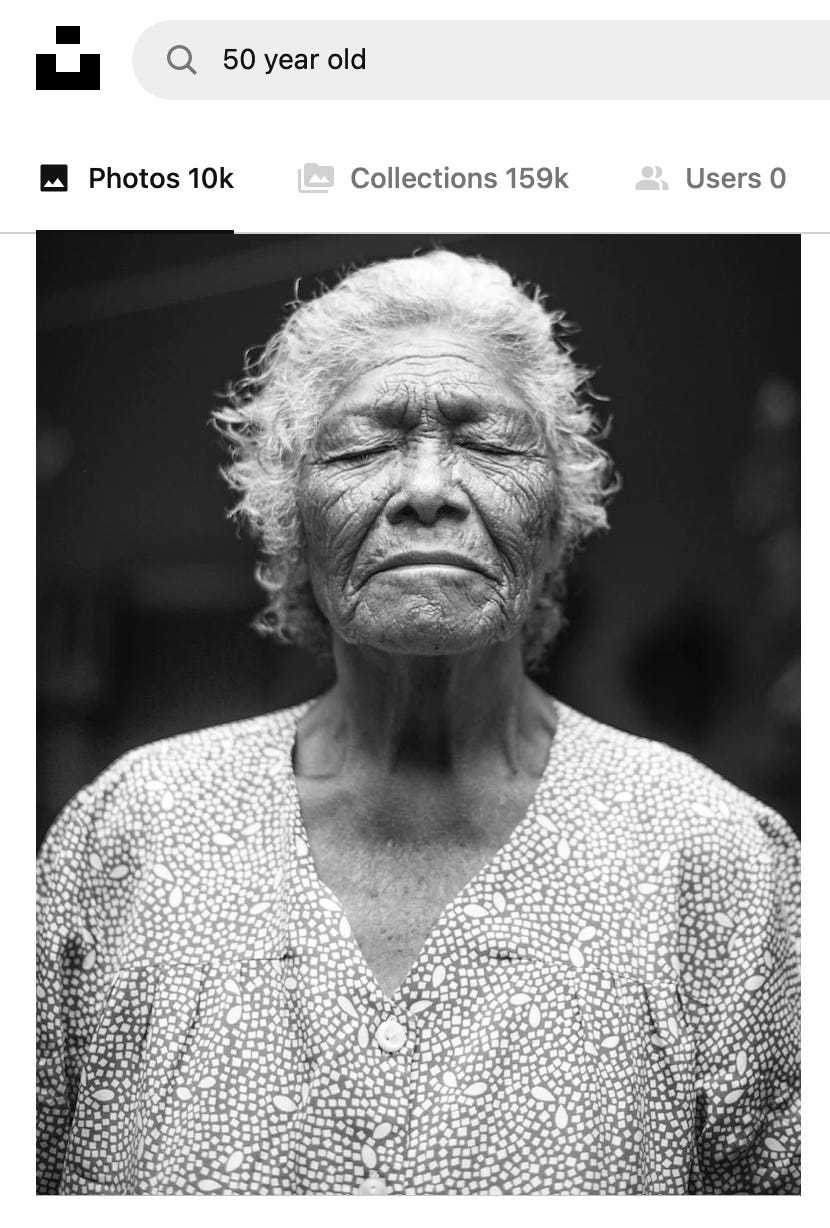
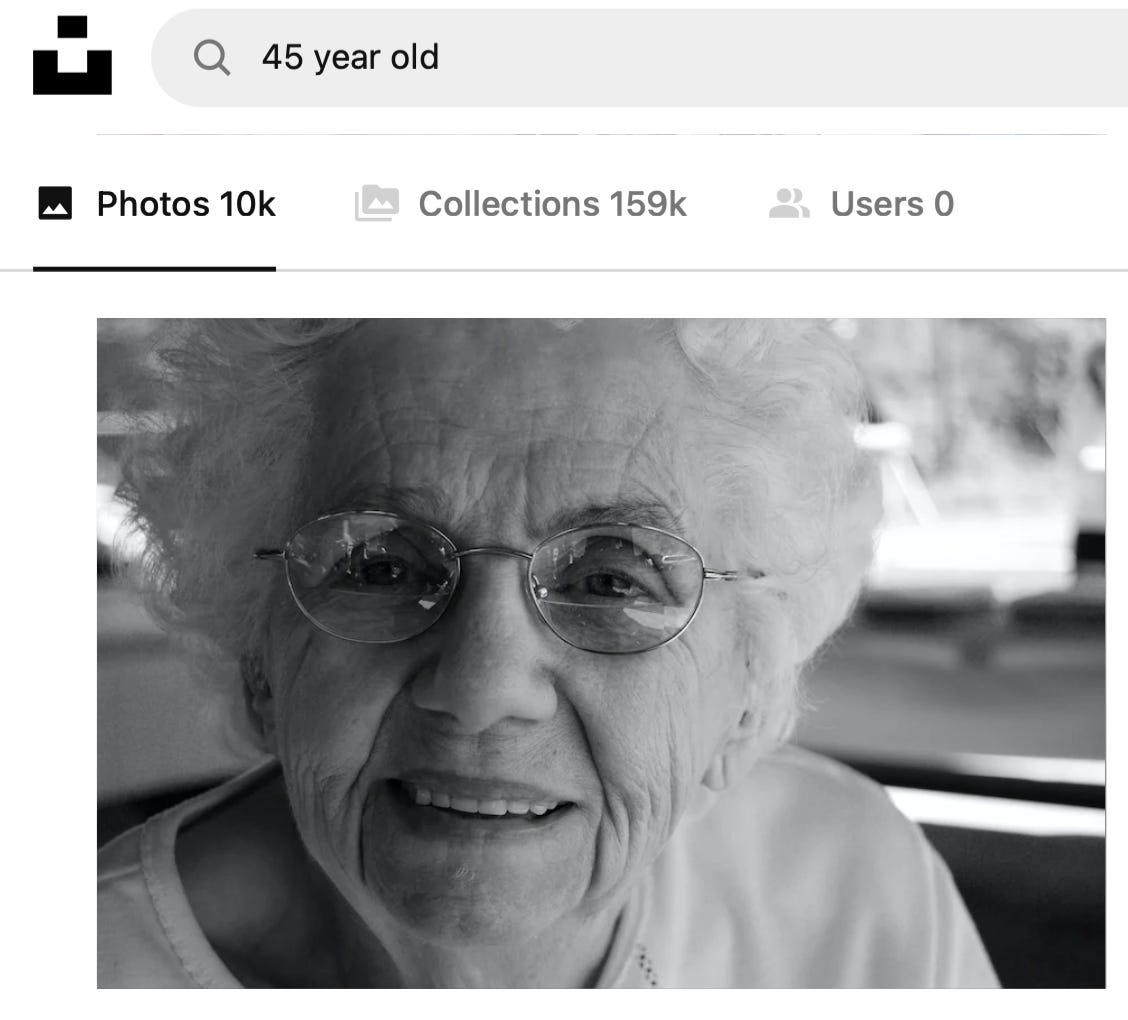
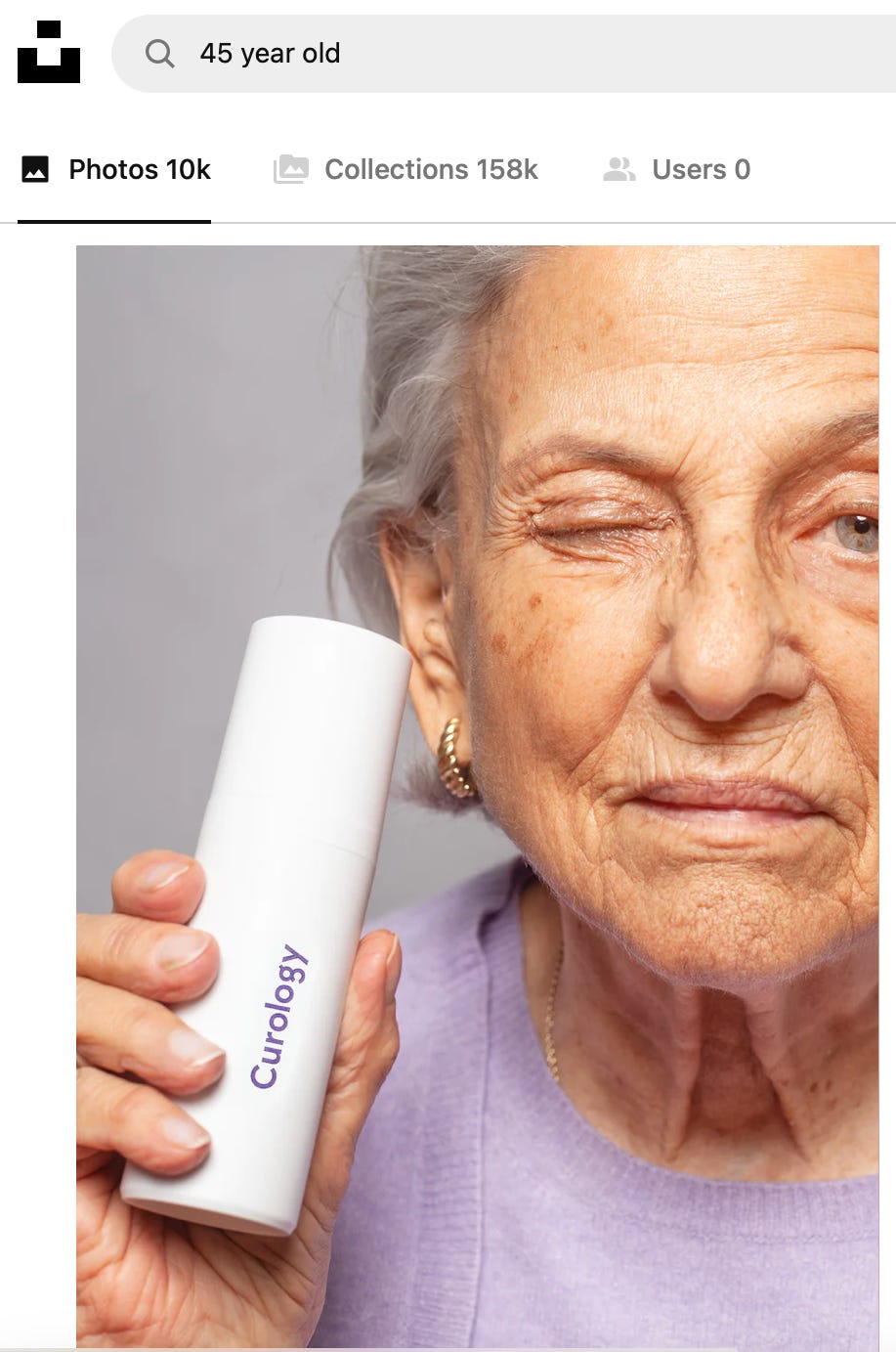
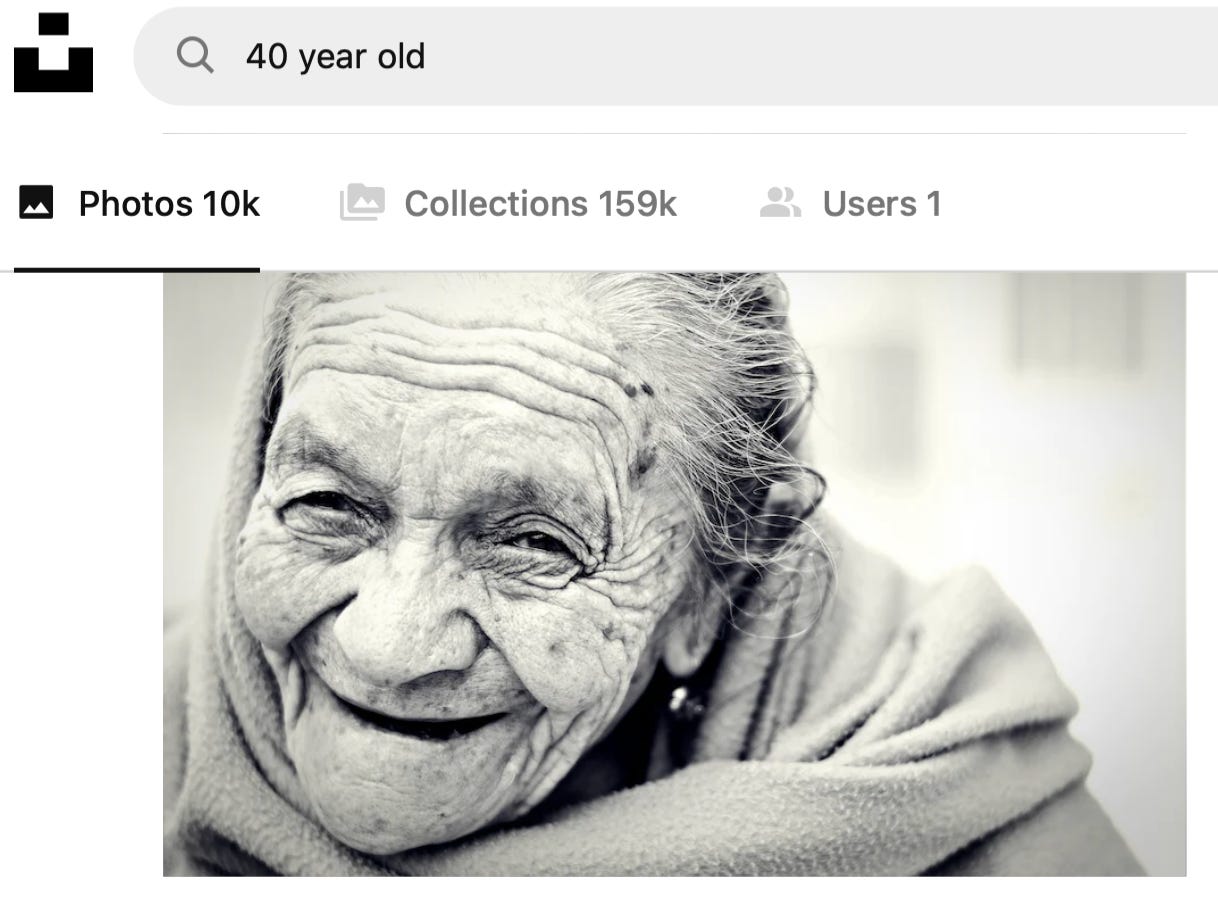
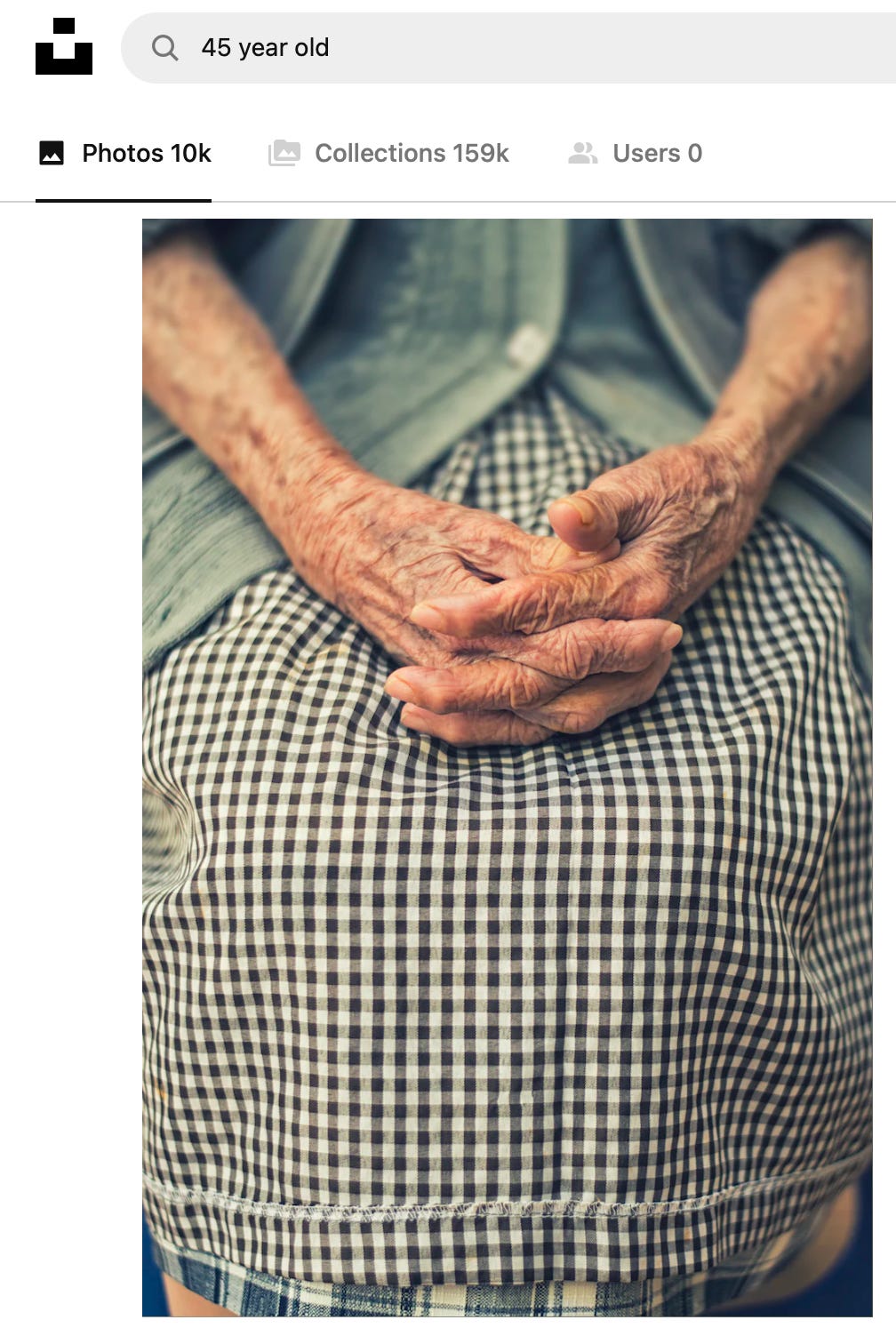

Algorithms are such a fraught issue! Age discrimination is complex too because it seems like, especially in some industries, you’re only the “right” age for 10 minutes if that. I’m about to turn 41 and still I’m young in my field and I look even younger. That means I just don’t get taken as seriously and my authority isn’t as respected. But if I were to look my age, then I’d get discounted for that! A no-win situation for sure. On top of which, I’m not even a woman (nonbinary) but I’m assumed to be one so the same stereotypes and expectations are placed on me.
Not sure what to make of this. Not surprised, of course, because....confirmation bias. And don't forget the studies that talk about women's voices: "I don't like her laugh. She yells. Just not that woman."